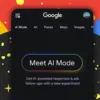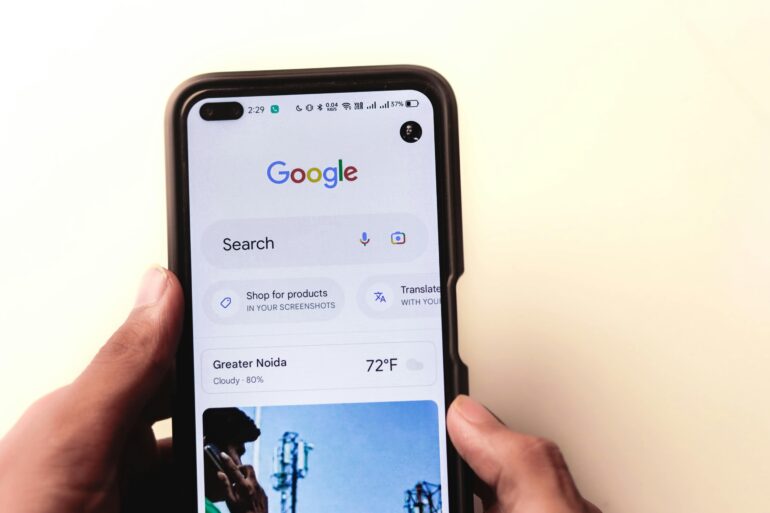In a digital world where every second counts, Google is plowing the fallow land of the new era with artificial intelligence. Maybe it's a bit behind, at least in appearance, but it's still ahead. Its transition from a simple search engine to a leading content platform is not just a technological advance, but a strategy for global dominance in access to information and at the same time ownership of content.
Google has long since outgrown its original role as a search engine. His ambitions extend into every niche of the digital universe. It is no longer just a portal where we find links to other websites. Google is becoming a direct content provider; from sports scores available before even visiting a news website to tour packages that combine accommodation and airfare without intermediaries. In this context, Google acts as an intermediary, guiding the user through the entire shopping process - from information search to the final purchase. Google is working to leverage its AI algorithms to not only predict what users are looking for, but also offer it to them instantly. In addition to the service sector and current information, it is increasingly establishing itself as its own media platform. Also because of services like YouTube.
The Tower of Babel effect: Multilingualism and accessibility
One of the key strategies with which Google is consolidating its role as a global content force is multilingualism. AI's ability to deliver content in multiple languages democratizes access to information in a way that was not possible before. With artificial intelligence, Google is moving closer to a vision where every user, regardless of language barriers, can access global knowledge. We truly expect that in less than a year, you will be able to watch videos on Google's YouTube platform in their original language and simultaneously in all major world languages. The videos will be translated into French, German and other languages, with artificial intelligence also adjusting the so-called “lip sync”. This will enable Google to create quality content even for smaller, localized creators. At the same time, it will automatically acquire more interesting content, instead of the relatively small upper triangle of creators that we all know.
Example of simulated translation > German > English
Already today, Google Translate within the Google Chrome browser offers users the option of translating a page into their language, depending on the settings, if it detects that the page is in another language. This function will be expanded in the future and will become practically preset according to certain automatisms. Fast or instant translations will soon be better than live translators, who have lost a large part of their business due to AI in the last year. Content platform and monopoly over the distribution of information The dominance or monopoly over the creation of video, which is completely clear within the framework of the YouTube platform, can also be transferred to some other segments of media activity. With its Google Cloud solutions, Google offers various very interesting solutions that, in addition to Google Translate, also enable various text readers in audio format and the like. Google is really also the biggest source of traffic to existing media websites, and practically the entire traffic of a certain medium depends on its "good" will and, of course, judgment, with the exception of social media, which in recent years have been reducing "travel" outside the circle of their application, because they want to , so that people create as much content as possible with them and for their platform. This is also why Google is gaining ground, as the main distributor of content and "filter" of the web, which, in addition to the ambition of referral, also has the great ambition of controlling content. And in this segment, Google can already be described as a mega application.
Is Google already a mega super app or does it have the ambition to become one?
Google, the tech giant that has dominated the web for decades with its search and advertising services, has been increasingly expanding into other areas in recent years. Its services, such as Gmail, Google Maps, Google Pay, and YouTube, have become almost indispensable in the digital age. However, does this mean that Google is on its way to becoming a "super app" in the way that WeChat is in China? WeChat, often described as the “app for everything”, offers a wide range of services from messaging, social networking, to payment systems and even official government services in a single app. Google, though vast, operates more like a collection of interconnected services than a single platform. For Google to achieve mega super app status, it would need to integrate its services even more tightly so that users can perform many activities without leaving the Google ecosystem. This would include improvements to Google Pay to make it a key part of shopping and financial transactions, as well as developing more connected social and communication features within its platforms. In particular, it seems that Google could achieve this by integrating an AI assistant that would act as a control center of the user's experience. So the unifier of all services. It is an AI personal assistant that would intelligently connect various seemingly separate Google services in the background and combine them into a complete ecosystem could play a key role. Imagine that someone replies in the style of your emails, because he understood the style of your writing, he searches for email messages with a high priority based on the understood content of your inbox. Automatically creates a Google Calendar event. Or he can book an appointment with a hairdresser for you. Such a platform will mean complete dominance of a certain segment of the industry and is comparable to BlackBerry vs Apple iPhone. Everyone else will simply be missing the main part, in our case multimodal AI.
Such a system would offer users an experience that would be somewhat similar WeChat, but on a more subtle level. A system that knows the user's patterns and habits could be the first step to the mega-use of an application that virtually everyone would use. In addition to technical and functional improvements, Google should also overcome the regulatory and privacy challenges it faces in different parts of the world. It should also adapt and localize its services for different global markets, which is a key part of WeChat's success in China. However, Google is already deeply embedded in the lives of its users, and with the right moves, it could further solidify its position. He has ambitions and potential, but whether and when he will really realize it remains an open question. If Google continues to innovate and expand its services, it could truly become a “super app” in the future that could equal or even exceed the functionality of WeChat.
Where exactly is Google?!
When tech visionaries like Elon Musk discuss the concept of "super apps," they often overlook Google's pre-existing dominance. Google, which boasts seemingly unrelated services, has long functioned as a coherent super app. However, in its pragmatism, Google does not hang these achievements on a big bell. Nevertheless, certain development trends suggest that artificial intelligence could add the final piece to the mosaic of this story. The recently introduced multimodal artificial intelligence, which can autonomously manage almost any information on the web and any Google app, points to this potential transformation. Such an assistant, which would know the user deeply - from his online habits to the way he writes e-mails and behavior patterns - could create a real "super mega application", a unified solution for the future. Apple's negotiations on the use of Google's AI only confirm that Google already has the keys to this technology in its hands. But since this concept is still quite avant-garde, it seems that the world is not quite ready for such technology.






